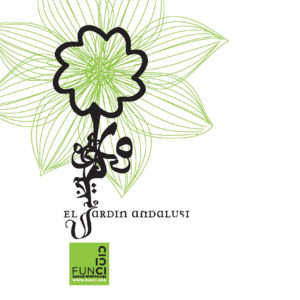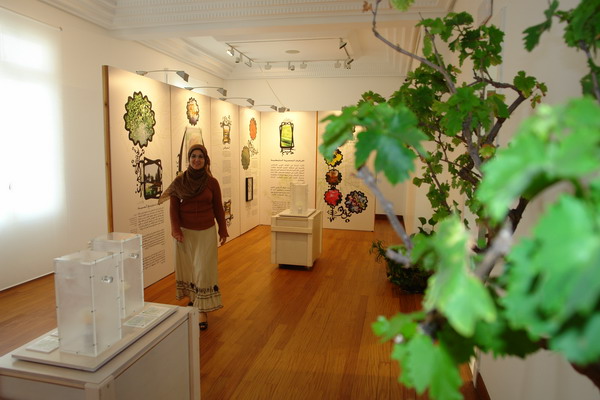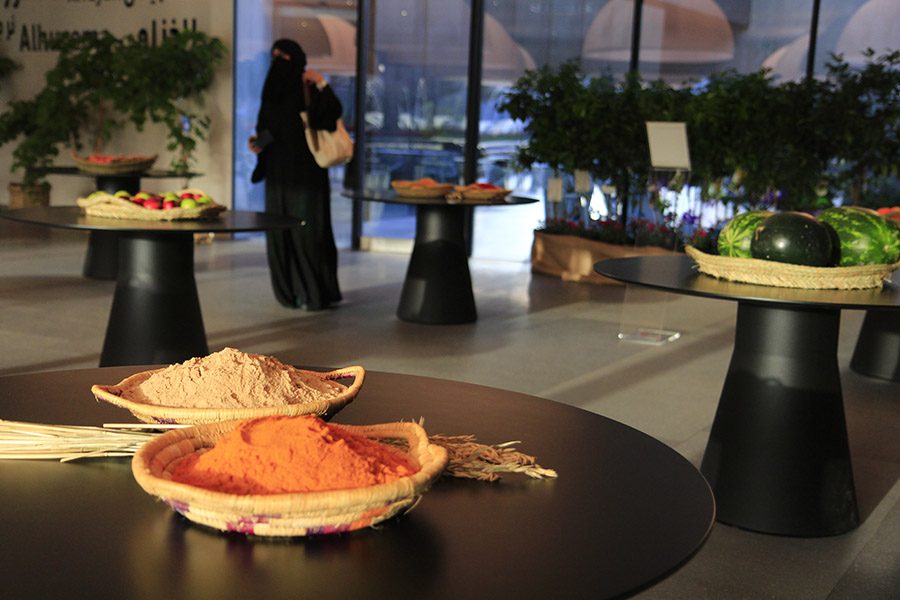In the XIII anniversary of the birth of Al-Andalus, the exhibition “Gardens of Al-Andalus” has come to Saudi Arabia under the auspices of the Spanish Embassy in this country, in collaboration with the Saudi authorities, after a long and successful tour around Spain and the Maghreb. The city of Riyadh will host it for one month in the magnificent framework of its National Museum, as from 15 January.
 Princess Adelah bint Abddallah bin Abdulaziz Al Saud said that “this exhibition aims to convey a message of cooperation to preserve the environment and the common heritage between East and West and confirms our interest in documenting a civilization which, through the mixture of its different elements and its creativity – represented by their important contribution to science, knowledge and art -, left a significant impact on the region, lasting until today”.
Princess Adelah bint Abddallah bin Abdulaziz Al Saud said that “this exhibition aims to convey a message of cooperation to preserve the environment and the common heritage between East and West and confirms our interest in documenting a civilization which, through the mixture of its different elements and its creativity – represented by their important contribution to science, knowledge and art -, left a significant impact on the region, lasting until today”.
« An invitation to intercultural dialogue and respect for the environment »
Created by the Islamic Culture Foundation (FUNCI) in Madrid, under the guidance of its President, Cherif Abderrahman Jah, this exhibition is the expression of the peaceful coexistence among different cultures and of respect for the environment and historical heritage, through one of closest aspects to the everyday life of peoples: Nature and gardens.
Islamic civilisation developed a culture of contemplating Creation and of scientific research. “Gardens of Al Andalus” displays the achievements of a stage in the past, Al-Andalus, which constitutes a scientific and cultural paradigm that can still serve today. Al- Andalus culture is the reflection of one of the most fertile periods of history, in which the art of gardening became one of the most sublime expressions of peaceful coexistence amongst peoples.
The exhibition is enjoyable and informative and, according to its curator, Cherif Abderrahman Jah, offers “the keys to a civilisation that loved nature and respected its surroundings. It addresses the general public, especially young people, inviting them to discover the values of this natural and historical heritage”.
“Gardens of Al Andalus” displays the achievements of a stage in the past, Al-Andalus, which constitutes a scientific and cultural paradigm that can still serve today.
The Ambassador of the Kingdom of Spain to Saudi Arabia, Pablo Bravo, considers that the information displayed in this exhibition perfectly illustrates the mixture of cultural traditions that shaped the Andalusian culture, “putting them on stage in the same space, the Andalusian garden, as a meeting point between human beings and Nature, a common place for coexistence amongst different traditions and cultures. It is a pleasure for the Embassy of Spain to share with the Saudi authorities and the public the contents of this exhibition that takes you back to a golden era in the history of Spain, which has been also one of the main bridges between Europe and Islam. An example of dialogue of Civilizations”.
The four perspectives of the Andalusian Garden
 Based on an unpublished work of scientific research, from the ecological and historical points of view, this exhibition shows the different types of Al-Andalus gardens -the Scientific Garden, the Poetic Garden, the Mystical Garden and the Orchard Garden . It is a modern, interactive exhibition comprising explanatory panels, photographs and illustrations, including models of hydraulic devices, ethnographic objects relating to farming in Al-Andalus, treatises on medieval farming in facsimile editions, audiovisuals, olfactory devices reproducing the aromas of the different products used at the time and artistic and plant displays.
Based on an unpublished work of scientific research, from the ecological and historical points of view, this exhibition shows the different types of Al-Andalus gardens -the Scientific Garden, the Poetic Garden, the Mystical Garden and the Orchard Garden . It is a modern, interactive exhibition comprising explanatory panels, photographs and illustrations, including models of hydraulic devices, ethnographic objects relating to farming in Al-Andalus, treatises on medieval farming in facsimile editions, audiovisuals, olfactory devices reproducing the aromas of the different products used at the time and artistic and plant displays.
In addition, “Gardens of Al-Andalus” forms part of Med-O-Med, which provides a framework for research, education and preservation of the environment, as well as the recovery of historic, botanic and acclimatisation gardens in the Mediterranean and Middle East, including Saudi Arabia.
Prior to its presentation in Riyadh, “Gardens of Al-Andalus” has visited many places in Spain – the Botanic Garden of Cordoba, the Royal Botanic Garden of Madrid, the Royal Alcázar in Seville, the Alhambra in Granada, and Toledo, amongst others-. In its Arabic version, it was displayed in the city of Aleppo in Syria and in the main cities of the Maghreb.
For its presentation in Riyadh, the project has received collaboration from the Embassy of the Kingdom of Spain in Saudi Arabia, the Saudi Commission for Tourism and Antiquities and the National Museum of Riyadh.
This post is available in: English Español

